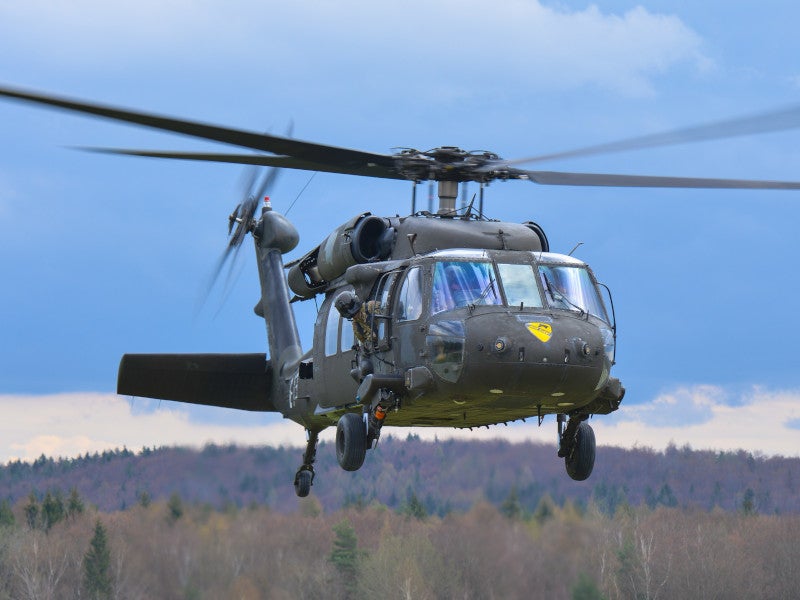UH 60 Black Hawk: From Principle to Modern Applications
UH 60 Black Hawk: From Principle to Modern Applications
Blog Article
The Influence of Sustainable Practices on the Future of Aircraft Operations and Emissions Decrease
As the aeronautics sector encounters enhancing analysis over its environmental effect, the adoption of sustainable techniques emerges as an important pathway towards future aircraft procedures and emissions decrease. Technologies in sustainable air travel gas and advancements in crossbreed propulsion technologies stand at the forefront of this transformation, appealing substantial reductions in greenhouse gas exhausts.

Introduction of Lasting Practices
Lasting practices in aircraft operations encompass a series of methods focused on reducing ecological impact while maintaining functional efficiency. These methods are necessary in the aeronautics market's commitment to reducing its carbon footprint and adhering to global ecological criteria. Key initiatives include maximizing flight paths to lower gas intake, boosting maintenance protocols to ensure airplane run at peak efficiency, and implementing sophisticated innovations such as winglets and lightweight products that boost the rules of aerodynamics.

Involving and educating staff on sustainability methods additionally play an important function, cultivating a society of environmental obligation within companies. Overall, the integration of these lasting methods not only aids reduce emissions but also improves the long-lasting viability of the aviation industry, ensuring it meets the demands of both clients and regulative bodies while adding to international sustainability objectives.
Cutting-edge Gas Alternatives
Numerous innovative gas choices are becoming essential options to minimize the aeronautics sector's dependence on typical nonrenewable fuel sources. Among these options, Sustainable Air travel Gas (SAFs) have actually gained significant attention due to their potential to decrease lifecycle greenhouse gas emissions by up to 80% compared to conventional jet gas. SAFs are stemmed from numerous feedstocks, including waste oils, agricultural residues, and even algae, making them a versatile alternative for the industry.
Another encouraging choice is hydrogen gas, which, when utilized in gas cells, creates only water vapor as a by-product. This zero-emission potential presents a substantial chance for decarbonizing flight operations, particularly for short-haul trips and local aircraft. Additionally, electric propulsion systems are being discovered, leveraging battery modern technology to power aircraft. While current battery capacity restrictions variety and payload, ongoing advancements might soon render electrical trips practical for specific applications - uh 60.
Lastly, biofuels acquired from biomass are being examined, using an eco-friendly option that can be mixed with standard gas. Jointly, these ingenious fuel options stand for a critical action toward accomplishing a lasting air travel community, aligning with international emissions decrease targets and improving the sector's environmental stewardship.
Technological Advancements in Aviation

How can technical innovations reshape the future of air travel? Technologies such as electric and hybrid propulsion systems are at the leading edge, encouraging significant reductions in fuel usage and greenhouse gas discharges.
Furthermore, the implementation of innovative materials, such as light-weight composites, adds to boosted the rules of aerodynamics and fuel effectiveness. Making use of expert system and machine discovering in flight procedures enhances route preparation and reduces gas burn by making it possible for real-time modifications based upon climate and web traffic problems. Furthermore, the growth of self-governing and from another location piloted aircraft systems stands to reinvent freight and traveler transportation, potentially boosting efficiency while lessening human error.
Moreover, sustainable aeronautics modern technologies, consisting of advanced air web traffic management systems, can enhance procedures and decrease blockage, leading to lower discharges throughout flight. These improvements jointly represent a paradigm change in aeronautics, promising a future where sustainability and functional effectiveness are intertwined, thereby supporting the sector's dedication to lowering its environmental effect.

Governing Structure and Conformity
Taking into account the expanding focus on environmental stewardship within the aviation market, the regulatory framework governing aircraft procedures is developing to promote lasting techniques. Regulatory bodies, such as the International Civil Aeronautics Company (ICAO) and different nationwide air travel authorities, are introducing strict guidelines focused on lowering discharges and boosting company website operational effectiveness.
These regulations frequently consist of the adoption of Lasting Air travel Fuel (SAF), which has actually been identified as a crucial component in accomplishing lower carbon impacts. Additionally, compliance with these regulations needs airline companies to execute sophisticated technologies and functional practices, such as optimized trip paths and enhanced air traffic management, to decrease fuel consumption.
In addition, the enforcement of emissions trading systems and carbon balancing out initiatives is ending up being significantly widespread, compelling airline companies to keep an eye on and report their emissions properly. Non-compliance can result in substantial penalties, hence pushing operators to focus on sustainability in their service models.
Inevitably, the developing governing landscape not only drives innovation and investment in eco-friendly technologies however also promotes a society of accountability address within the air travel sector. As these frameworks remain to create, the concentrate on lasting techniques will be indispensable to achieving the sector's long-lasting ecological objectives.
Future Trends in Airplane Procedures
As the aviation industry adapts to a progressively rigorous regulatory atmosphere, future fads in airplane procedures are established to concentrate on innovative services that additionally boost sustainability and efficiency - uh 60. Secret advancements will likely consist of the fostering of sophisticated air web traffic management systems, which make use of real-time data and synthetic intelligence to enhance trip courses, minimizing gas consumption and emissions
Another considerable trend is the raised integration of lasting aeronautics gas (SAFs) These options to conventional jet gas, stemmed from renewable sources, can substantially decrease lifecycle greenhouse gas exhausts. The industry's commitment to SAFs will likely accelerate as airlines collaborate with gas producers to guarantee availability and cost-effectiveness.
Additionally, the push in the direction browse around this web-site of electrification and crossbreed propulsion systems is obtaining energy. Arising aircraft styles will incorporate these technologies, using quieter and more effective procedures, especially for short-haul flights.
Conclusion
The fostering of sustainable air travel gas, combined with advancements in hybrid and electrical propulsion systems, is essential for decreasing lifecycle greenhouse gas exhausts. Optimizing trip paths and accepting cutting-edge innovations add to a quieter and much more eco friendly aeronautics industry.
Technologies in sustainable aeronautics fuels and improvements in crossbreed propulsion innovations stand at the leading edge of this makeover, promising substantial decreases in greenhouse gas discharges.Many cutting-edge fuel options are emerging as critical solutions to minimize the aviation sector's dependence on standard fossil gas - uh 60. Amongst these choices, Sustainable Air travel Gas (SAFs) have actually obtained substantial interest due to their potential to decrease lifecycle greenhouse gas exhausts by up to 80% compared to standard jet gas.One more considerable fad is the raised combination of sustainable air travel fuels (SAFs) The adoption of sustainable air travel fuels, combined with advancements in electric and hybrid propulsion systems, is essential for minimizing lifecycle greenhouse gas emissions
Report this page